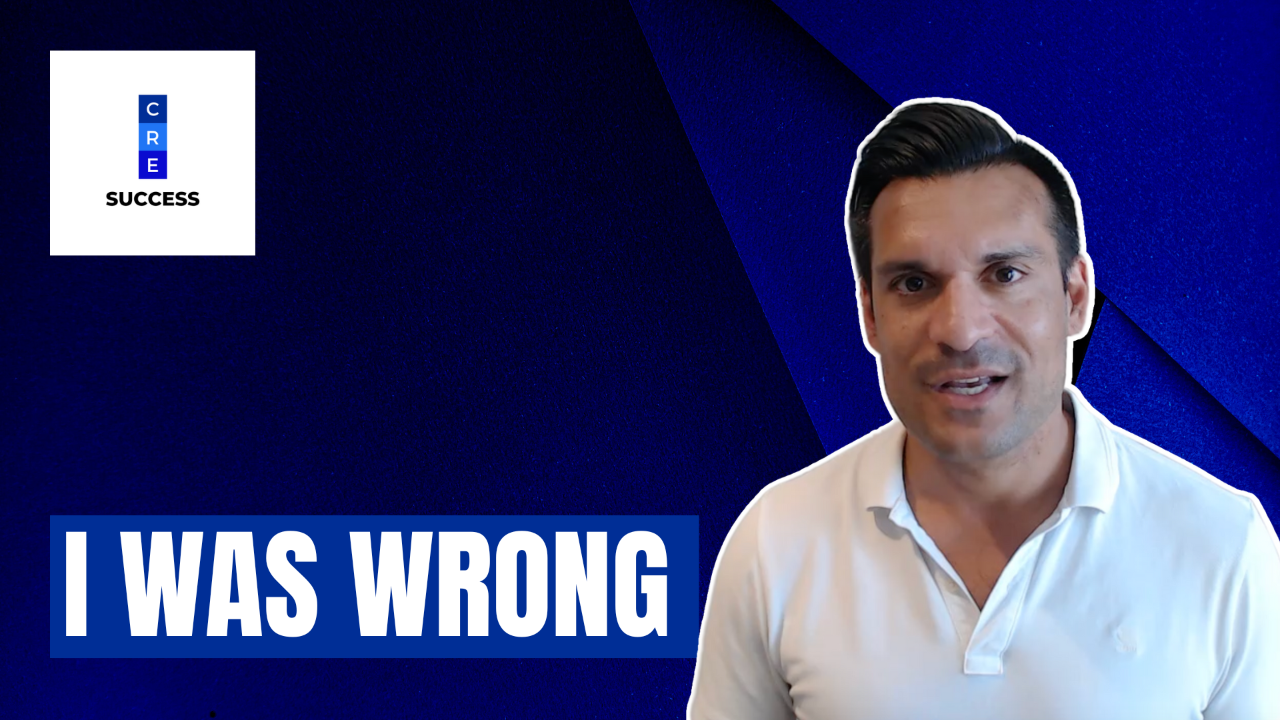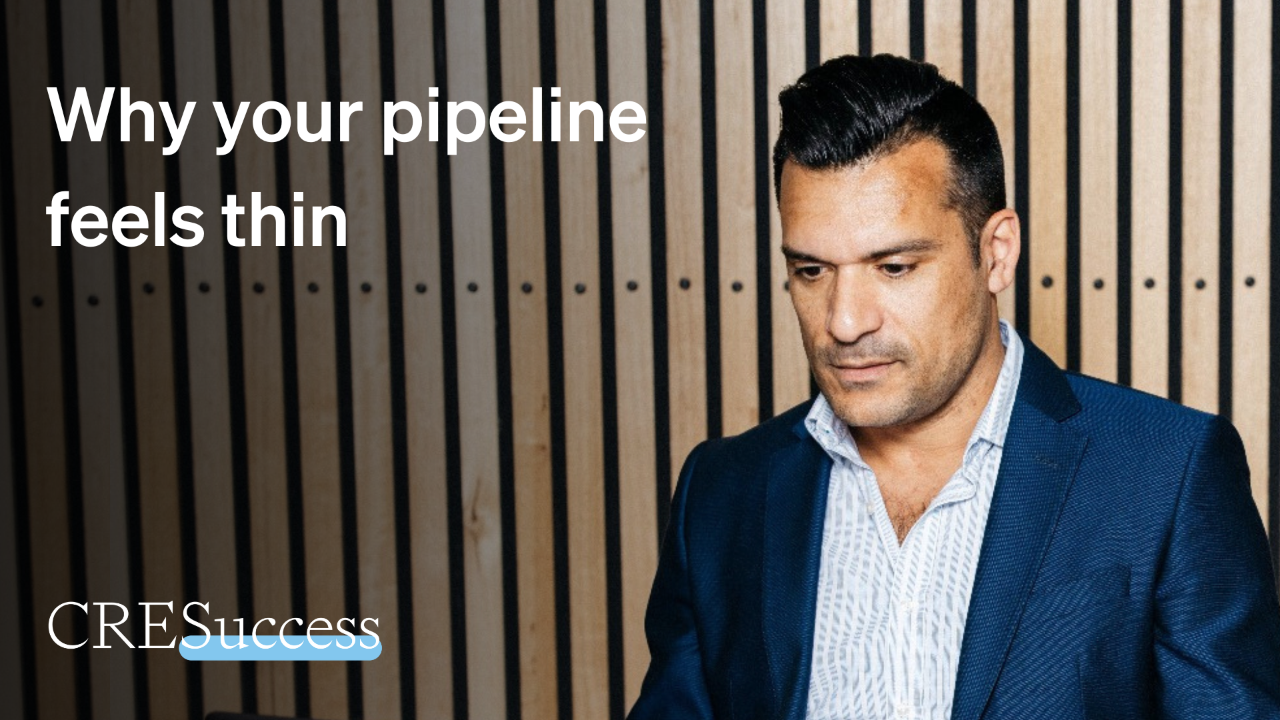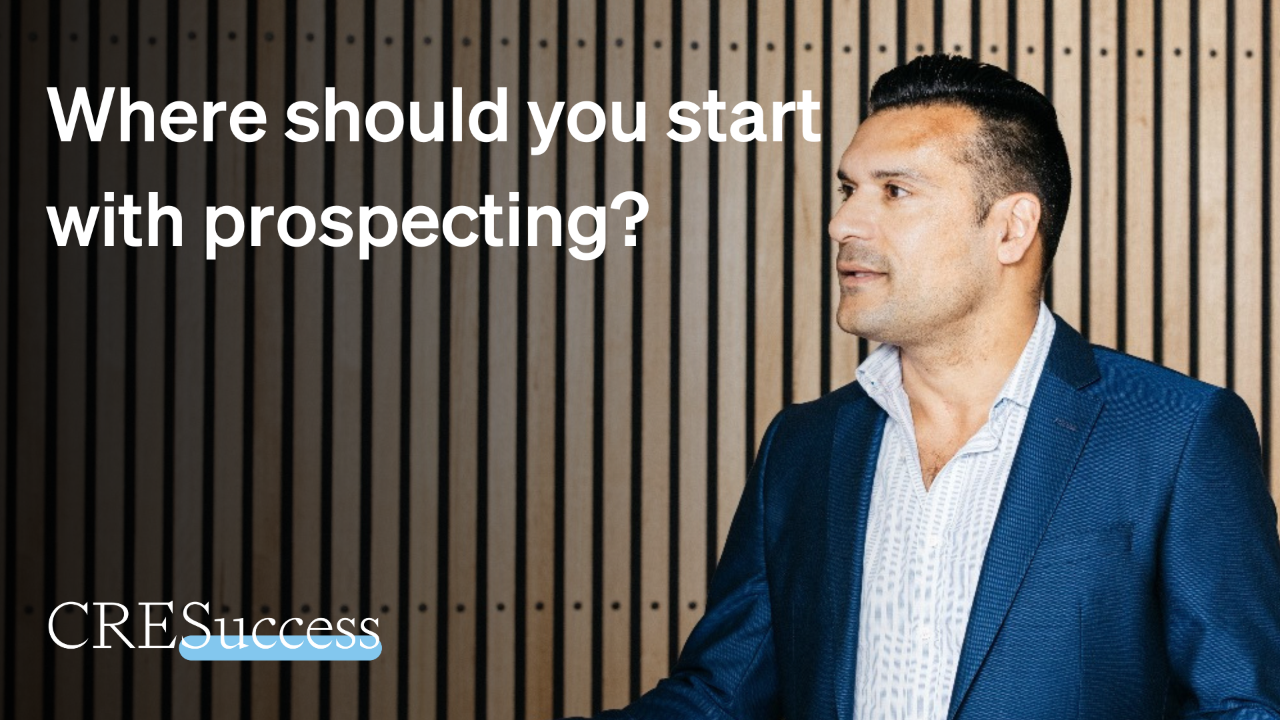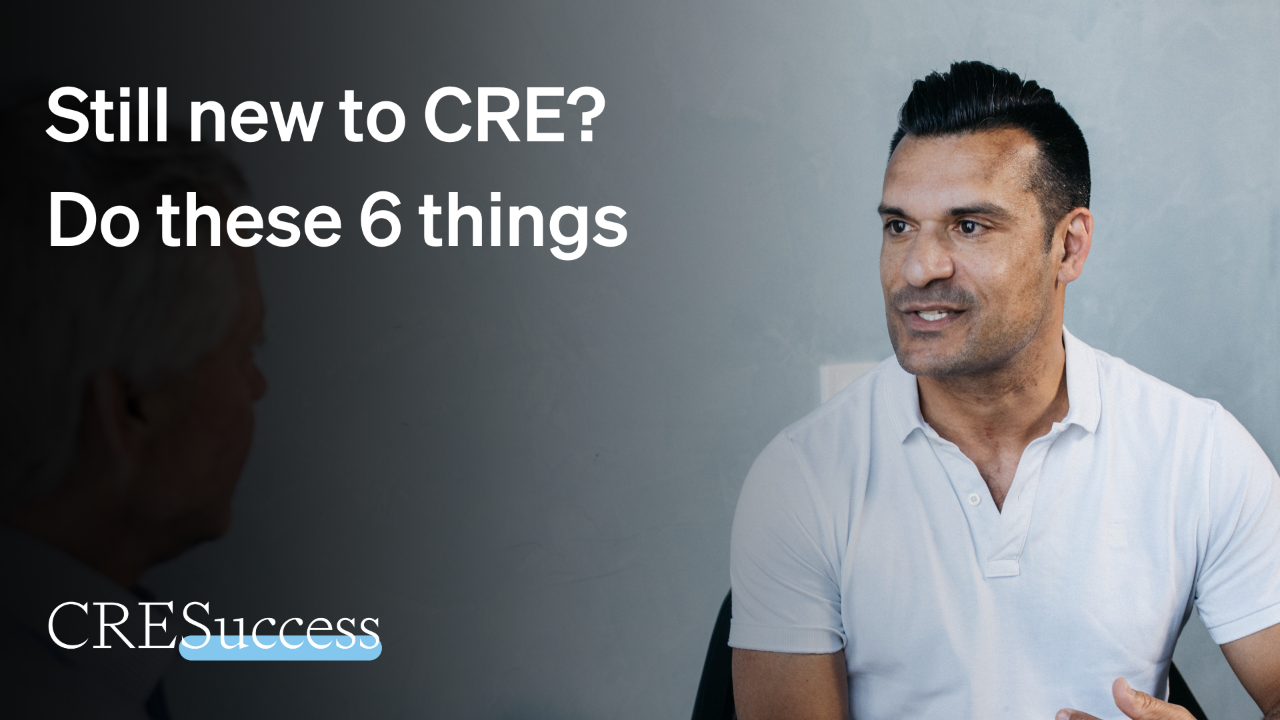Build a team with different people to drive stronger growth
Feb 22, 2023
When I first started leading commercial real estate teams, I naively thought that if I could just find more people who were a lot like me, or perhaps clone myself, then the business would be able to grow even faster.
But that was wrong!
The businesses I led didn’t need a team that comprised of carbon copies of me (side bar: that would have been a very difficult team to manage!).
They needed people who possessed the skills that we didn’t already have – because people with different capabilities complement each other’s strengths and compensate each other’s weaknesses.
Luckily, I figured that out as I was handed more responsibility.
Later in my career, I learned how to celebrate the differences within the team – because different types of people underpin the creation of thriving businesses.
One way to do it is a simple but powerful exercise that any leader can conduct; it involves recognising people for their unique strengths.
I’ll show you how to conduct this exercise, and how to embrace less of the same, in episode 128 of CRE Success: The Podcast
Episode transcript:
A lot of people who are busy just wish that there were more versions of themselves, that they could multiply themselves.
And that would mean that there would be more capacity in the business to get more things done.
And while I understand this thinking, the idea of, if there was just more of me that I could get more done, it's one, it’s not possible, but also two, it's not the best way to increase your efficiency and to add more capacity to the business.
Because a better way to increase capacity and to get more done is to find people who aren't like you.
Because the people who aren't like you will be able to do all of the things that you don't want to do, or that you're not good at, or that isn't really dollar productive for you to do, so you can focus on doing the things that you are good at, that you do enjoy doing, and that are dark productive for you to do.
That's what we're talking about on today's episode of the show.
Hello, welcome to Episode 128 of CRE Success: The Podcast. My name is Darren Krakowiak. I help commercial real estate leaders to develop their people and to grow their business.
As always, really appreciate you tuning in for today's episode.
And before we get into talking about efficiency, in terms of the way that you make up a business, the people that are in it, and the composition of a team, I want to talk to you about a way to communicate more effectively.
And the best way that I've found to elicit responses from people, as I've been firing up my year and starting to reconnect with people who were people who had conversations with in the past who I believe I'm well placed to serve and to support and to help but haven't actually become a customer yet is by sending them a text.
So not bombarding them with text messages, but being willing to include in my outbound prospecting cadence and SMS from time to time.
And I found that compared to an email, compared to a missed call, compared to a voicemail, an SMS is much more likely to actually be responded to.
So, I want to recommend to you to include more SMS in your communication strategy as you do seek to reengage with people.
I'm going to put one little asterix or caveat on this, which is that I don't recommend using SMS for cold prospects.
So, for people who you haven't spoken to before, I think it's great for warming up or re-engaging with prospects that have maybe gone cold or that you have let go a little bit stale and started to get them into a conversation again.
And it's fantastic for having conversations with people who you're already in a business relationship with.
With that being said, if you want to know 10 ways that you can use texting more effectively with prospects and also with clients specifically in commercial real estate, you can go to cresuccess.co/text and pick up our free resource which is called 'The top 10 texts' that you can be sending in commercial real estate.
And one little, I guess, fact that I'll leave you with is that the research shows that a text is likely to be responded to within 90 seconds on average.
But an email is likely to be responded to within 90 minutes, if it is even opened or read which is far less likely than with text.
So, if you want to know how to open up that communication channel, cresuccess.co/text.
Now on our previous episode, we did have two special guests.
It was Damien Theisz and Kristian Lunardi, who are joint directors and partners in business at Nelson Alexander Commercial, the first clients that I had inside our leadership and business coaching program here at CRE Success.
And one of the big takeaways that I took from that conversation was the fact that they recognize that they are different, and that they have different strengths and different weaknesses.
And that it is their role to, I guess, complement each other and support each other in the areas where they have those strengths.
And they have those weaknesses. And I think it was Christian who said during that interview something to the effect of, if you're going to get into business with somebody who's exactly like you, then you may as well be in business with yourself.
Because ultimately, it's not adding so much as if you are in business with somebody who's quite different to you.
And while as I said at the top of the show, just having more versions of yourself or cloning yourself does go some way to increase capacity in the business, it's only going to do that for the things that you are good at.
All of the things that you're not good at that you don't want to do, that you're not best placed to do in order to contribute to the growth of the business will still continue to fall by the wayside, or you'll be asking other people who are similar to you to do things that you wouldn't want to do anyway.
And if the chances are that you wouldn't want to do them, then probably the people who are similar to you wouldn't want to enjoy or doesn't want to do them either.
Which means that they're not going to be in an environment which is possibly well suited or best suited for them to shine.
So, if everyone is the same, there's going to be I believe, a lot of roles that remain unfilled, or people are going to start to become unhappy.
And that's the power of diversity.
And this is not a conversation about the various elements of DE&I Diversity, Equity and Inclusion)
I've identified that as one of the key trends that you want to be looking out for in your business that can be for another time when I talk about that.
But what I want to more talk about is just the need for us to have a team inside an organization.
And I want to give you some reasons or some arguments for that, apart from what I've already mentioned.
I think the first one is because different types of people will generate more ideas and also better ideas.
And a danger that happens when people are very similar, when people come from different experiences, when they have similar interests, similar like, similar personalities, a similar outlook, is that there is much more likelihood of what's called groupthink occurring, which is where everyone just sort of thinks the same or doesn't really challenge each other's thinking.
And that creates a limitation on the amount of good ideas that can come from a conversation from a group from a meeting.
So, if we want to get more good ideas and better ideas, then one way that we can do that is to have a little bit of a contrarian amongst us, someone playing the devil's advocate.
Or even better, instead of playing that role, we can actually have people who are different, to provide that different perspective.
Complementing each other's strengths and compensating for each other's weaknesses is another reason why we want to have different people inside a team, inside an organization.
Because people who are different generally have different skills and different capabilities.
And I think that really goes to what Christian was saying on the podcast last week, and Damien recognized that as well.
The importance of them being able to support each other in places, in areas with input where the other person isn't in their natural strength.
I think that you should be more inclined to hire a wider variety of people, because if you have different types of people inside your team, then the people who are there will also be able to recognize the strengths that you can't usually see, right?
And I can remember a specific example, way back probably about 12 years ago, when I was working in Korea.
And our head of finance, who also doubled up as the head of HR said to me about a prospective candidate that we did end up hiring and was one of the best people I've ever worked with.
And he said, she said to me about her that this person is going to be like polishing a stone and that stone is going to become a diamond.
So, your job is to polish the stone, and she will become someone who is fantastic inside that organization.
And because our head of finance, could see what I couldn't see, we ended up hiring that person.
And she was right. That person really lived up to that great potential.
And if I didn't take that advice, if she wasn't different to me, then I wouldn't have been able to see that.
If I was inside an organization where everyone is the same, we possibly might not have given that opportunity to that person. And we wouldn't have had the benefit of working with her.
And actually, that person is someone who I still speak to this day. And I really appreciate the fact that I got that opportunity, that perspective, from previously the head of finance.
But somehow in some moment, I would say uncharacteristic maturity at the time decided to take her advice, and it was a good thing to do.
I didn't quite understand why she was telling me that and I remember even even thinking that maybe she should butt out and not, you know, interrupt me in my what I was trying to do.
And I guess conversely the same way that people can see strengths that you can't see, also there are going to be weaknesses that you can't see that others can notice.
So if you've got a tendency to have shiny object syndrome, to be really attracted to fads or trends, or maybe to look at a certain person with rose tinted glasses, because you see something in them.
Other people who are like you are going to probably see things the same way, but people who are different, are likely to see some red flags that perhaps you can't see and can help you avoid making poor decisions when it comes to hiring people taking on clients, taking on projects.
So, I think that the lesson that I learned from the conversation with Damien and Kristian last week that reminded me of lessons that I've learned in the past is that we need to actively look for different people, or be open to employing them.
And then, as a leader inside an organization, your job is to then celebrate those differences and actually recognize them, and point out that we are pleased by them.
And I can remember that one exercise that I was taught in a previous role was to recognize people for their unique strengths.
And the way that we would do that is just go around the table at our, I think it was probably quarterly kind of strategy meetings, and just acknowledge the unique strengths that individual brought to the team.
So, I can remember in one meeting, I recognize somebody for their poise, the fact that this person was working in an apartment where there were a lot of Human Resources challenges, but this person always kept their call. So, I recognize their poise.
Another person was very much a people-oriented leader, and always very protective of the people in their business line.
I recognize their almost servant type leadership, which was a perspective that he brought to our leadership group that one I didn't have, and some other people didn't necessarily have.
But he was there to play that role to make sure that we always were looking at things through that lens as well. Another person that was recognizing their financial results, etc.
So recognizing when people are different, and also celebrating those differences, and pointing out the value that they provide to the overall team to the overall business, I think reinforces to the people around you.
That we shouldn't just be looking to hire an army of us, a a bunch of clones, but rather, we should be looking to bring in lots of different people into the team.
That's our episode for today. That's all I've got for you. We're going to go back to another special guest.
Next week, we're going to be speaking to somebody who's already been on the podcast, but is now a client.
That's all I'll tell you. You'll have to stick around for our next episode to say who that is.
Thank you so much for listening. I will speak to you soon.








